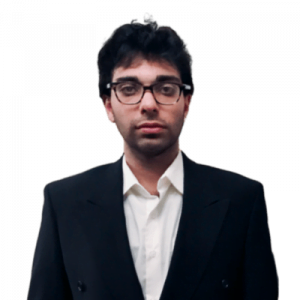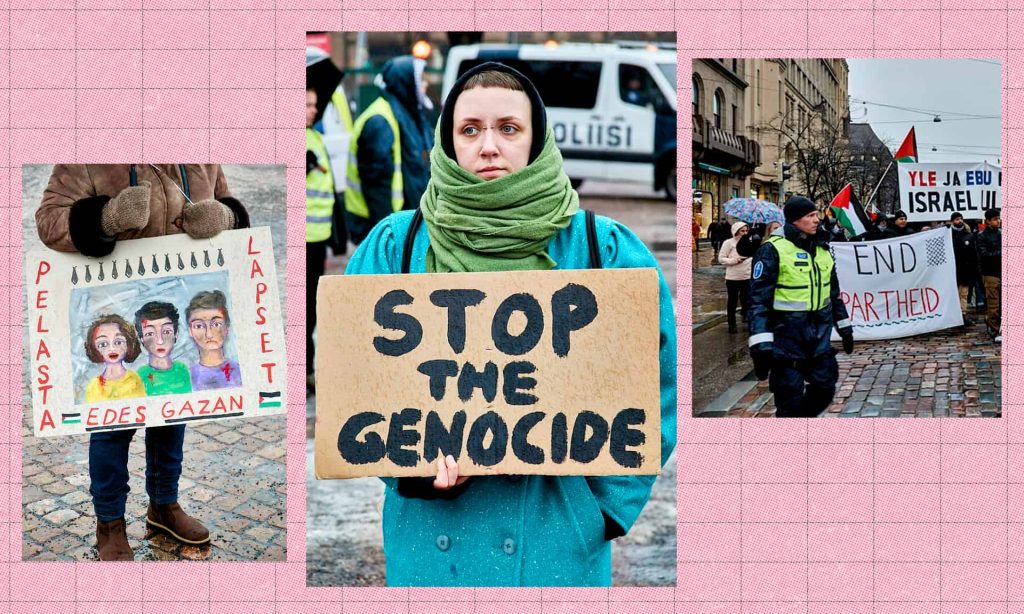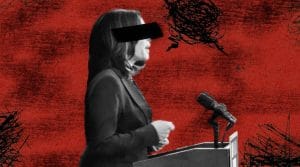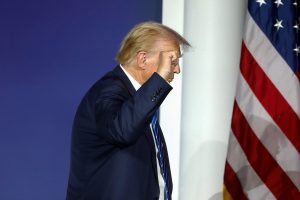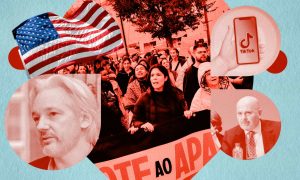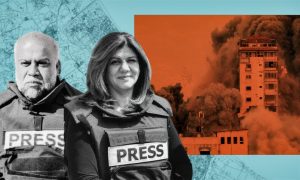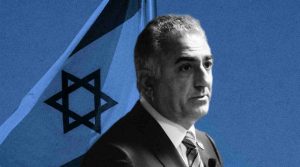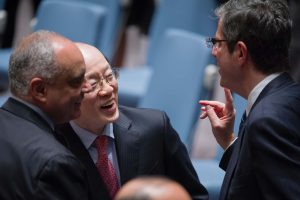A genocide in Palestine is unfolding right before our eyes, a saga of despair and devastation that many in the West, cocooned in a bubble of comfort and convenience, choose to ignore.
Just recently, amidst the clinking glasses and idle chatter of a social gathering, I ventured to pierce this bubble. I posed a question to my friends, seemingly simple yet laden with the weight of untold suffering, which asked for their thoughts on the current mass slaughter of Palestinians by Israel; an atrocity that enjoys, astonishingly, the tacit approval—if not outright support—of our governments. One friend, embodying the spirit of our age’s indifference, confessed to avoiding the subject altogether. The casual dismissal struck me—not for its rarity, but for its brazenness, as if the very act of engagement with such a grave matter was itself a burden too heavy to bear.
This conversation—or rather, the lack thereof—prompted a reflection on the stark discrepancies in our collective moral compass. When I inquired why the invasion of Ukraine, which indeed merits global condemnation for Russia and support for Ukraine, elicited such a passionate response while the Palestinian genocide seemed to merit only silence, the answers were telling. One friend admitted to a personal connection to Russia, thus explaining his selective outrage. Yet, this admission only underscored the problem: Our empathy, it seems, is governed not by the scale of human suffering but by proximity, familiarity, and, dare I say, convenience.
Let us then confront the uncomfortable truth. The stark reality of the numbers—a harrowing tally of lives taken away by Israel—demands our attention. In Gaza alone, since October 7th to February 22nd (only 138 days) at least 13,000 children and 8,500 women have been killed by Israel, a figure that dwarfs the grievous casualties in the two-year Russia-Ukraine war. And yet, in my social circles, many have remained largely silent. This selective empathy, this moral myopia, is not merely a failure of individual conscience but a symptom of a broader societal ailment. It is reinforced by a media landscape that prioritises some narratives over others, shaping public perception.
The steadfast complicity of Western nations with Israel, at the grave expense of Palestinian existence, stands as a glaring emblem of how the narrative of conflict is perverted. A quantitative analysis starkly illustrates the bias within major newspapers, skewing coverage toward Israeli narratives in the initial onslaught on Gaza. This biassed media portrayal does not merely influence public perception; it actively shapes it, funnelling viewers towards a distorted understanding of the conflict. In an era where pro-Israel pundits and politicians lie, deceive and attribute every pro-Palestinian support to so-called misinformation, the true scale of tragedy is obfuscated. With over 30,000 Palestinians and 1,200 Israelis having perished since the onset of the Israel-Hamas conflict—a casualty ratio starkly standing at approximately 25 to 1—astonishingly, a significant portion of the Western public remains unaware of which side bears the greater loss of life.
Compassion fatigue cannot be the terminus of our moral journey.
Yet, to engage solely in the critique of media and governmental biases is to overlook the more profound, existential question: What is to be done by us, individually and collectively? This question prompts a reflection on our role within this narrative of injustice. The phenomenon of compassion fatigue—brought on by the relentless assault on basic human rights across the globe—cannot be the terminus of our moral journey. Indeed, many choose to avert their gaze, an act not of malevolence but of overwhelming despair.
Read more: Compassion fatigue: How to turn your compassion into positive action
For some, evading harrowing topics appears a necessary defence mechanism, a bulwark erected to shield their sanity from the relentless barrage of grim realities. Yet, we must confront a harrowing truth: if the appalling slaughter of 30,000 Palestinians can be so readily ignored, what magnitude of death and horror would it take before we are jolted into action? Does the enormity of the atrocity become easier to overlook, or should it, as it rightly must, continuously haunt our collective conscience? In this equation, where mental well-being is balanced against the stark realities of human suffering, might not a more proactive stance against this bloodshed serve to alleviate our psychic distress? Is the mass extermination of Palestinians, with the ominous prospect of further slaughter looming, not enough to stir your moral outrage? Are we to idly await the fall of another 30,000 before our collective moral compass finally directs us towards justice?
Read more: The end of a charade: Israel’s collapse under global condemnation
But let’s answer the question at hand, the genocide which is unfolding before our eyes, bolstered by a deliberate famine, demands from us not just idle speculation of our hypothetical heroism, but the muster of real action. The silent acquiescence of the governed in the face of our governments’ complicity—whether through action or inaction—transforms our silence into a tacit endorsement of policies that, upon introspection, probably stand in stark opposition to our values.
We contribute to a narrative that devalues human life based on geography
And this is not a question of bearing guilt for the oppressor’s actions but recognising our power to effect change. From educating ourselves and our communities, and demanding accountability from our leaders, to supporting those on the ground who work tirelessly to alleviate suffering and advocate for peace, there lies a spectrum of action available to us all.
This discussion is not about apportioning blame indiscriminately but about awakening to the realisation that our inaction, our silence, plays a role in the perpetuation of injustice. It is about understanding that every moment we choose to look away, every instance we decide that the plight of the Palestinians—or any oppressed people—is too inconvenient or too distant for our concern, we contribute to a narrative that devalues human life based on geography, ethnicity or political expediency.
History will judge us, and the question will not be whether we bore direct responsibility for the actions of oppressive regimes, but whether we did all within our power to oppose them. We will be judged by whether we lent our voices to the voiceless, extended our hands to those in need, and whether we stood firmly on the side of justice, even when it was uncomfortable or unpopular to do so.
Let us then, in the spirit of those who have fought for justice and human dignity throughout history, refuse to be bystanders in this moment of profound crisis. The tragedy unfolding in Palestine is not merely a geopolitical dispute to be debated from the safety of our living rooms but a genocide that demands our immediate and unwavering attention. In the end, our stance against injustice, our refusal to remain silent, will define us.
Don’t be content with asking what we would have done in the face of past atrocities. The question before us is what we will do now, in the face of ongoing injustice, to ensure that when future generations look back, they will see not silence, but action; not indifference, but compassion; not complicity, but courage.


